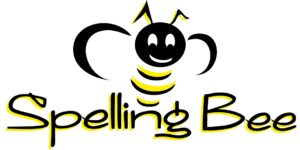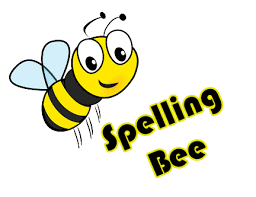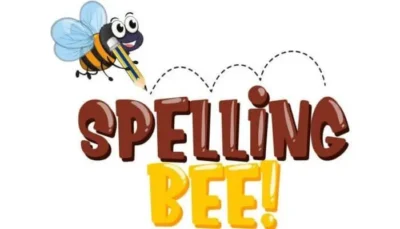Spelling bee competitions have long been a hallmark of educational excellence, challenging students to showcase their linguistic prowess and mastery of the English language. When it comes to high school, the bar is set even higher, and the words chosen for spelling bees become more intricate and demanding.
In this article of “spelling bee words for high school,” we will delve into the world of words that not only test the spelling abilities of students but also their dedication, determination, and intellectual rigor.
Significance of spelling bees in high school

Spelling bees in high school, like other academic competitions, hold several significant benefits for students, their schools, and the broader community.
Here are some of the key reasons why spelling bees are important in high school:
- Vocabulary and Language Skills: Spelling bees encourage students to expand their vocabulary and improve their language skills. Participants have to learn and understand the correct spelling of a wide range of words, which can enhance their overall language proficiency.
- Cognitive Development: Preparing for and participating in spelling bees can improve cognitive skills, such as memory, attention to detail, and pattern recognition. These skills are valuable not only for spelling but also for other academic pursuits.
- Confidence Building: Spelling bees provide students with an opportunity to showcase their knowledge and skills in a competitive setting. Success in such competitions can boost a student’s self-confidence and self-esteem.
- Discipline and Work Ethic: Preparing for a spelling bee requires dedication, discipline, and hard work. Students learn the value of consistent effort and the rewards that come from sustained practice.
- Public Speaking Skills: Spelling bees involve speaking in front of an audience. Participating in these events can help students improve their public speaking and presentation skills, which are valuable in many aspects of life.
- Healthy Competition: Spelling bees promote healthy competition, encouraging students to strive for excellence and continually improve their abilities.
- Educational Entertainment: Spelling bees can be engaging and fun, combining education with entertainment. They often generate enthusiasm for learning and language among students and spectators.
- Cultural Awareness: Through the diverse range of words used in spelling bees, students gain exposure to words from various languages and cultures, promoting a broader understanding of the world.
- School and Community Engagement: Spelling bees can foster a sense of community within a school and bring together students, teachers, and parents to support and celebrate academic achievement.
- College and Career Opportunities: Excelling in spelling bees can enhance a student’s college applications and scholarship opportunities. Strong language and communication skills are also highly valued in many professions.
- Lifelong Learning: The knowledge and skills acquired in spelling bees can have a lasting impact on a student’s attitude towards learning and personal development, promoting a lifelong love of words and language.
How to Prepare for a High School Spelling Bee
Preparing for a high school spelling bee requires dedication, practice, and a systematic approach.
Here are some steps to help you prepare effectively:
- Get the Official Word List: Obtain the official word list for the spelling bee you will be participating in. This list will be your primary resource for study.
- Understand the Rules and Format: Familiarize yourself with the rules and format of the spelling bee. Know how words will be presented, how many chances you have to spell a word, and any other specific guidelines.
- Create a Study Schedule: Develop a study schedule that includes regular, consistent practice. Allocate specific time each day for spelling bee preparation.
- Learn Word Meanings: Don’t just memorize the spelling of words; understand their meanings, origins, and usage in sentences. This can help you remember them more effectively.
- Use Flashcards: Create flashcards with the word on one side and its definition and pronunciation on the other. Review these flashcards regularly.
- Practice Pronunciation: Pay attention to pronunciation. Practice saying the words out loud, and consider using online resources or dictionaries with audio pronunciations to help you.
- Break Words into Syllables: When encountering long or complex words, break them into syllables to make them easier to spell. This can be especially useful for multisyllabic words.
- Word Etymology: Learn about the etymology (word origin) of words. Knowing the roots and prefixes/suffixes can help you decipher the spelling.
- Practice with Sample Sentences: Use the words in sentences to ensure you understand their usage and context.
- Mnemonic Devices: Develop mnemonic devices or memory aids for tricky words. These can be acronyms, rhymes, or visual associations that help you remember the spelling.
- Test Yourself: Regularly quiz yourself on the words in the official list. Try spelling the words, defining them, and using them in sentences.
- Simulate the Spelling Bee: If possible, practice with someone who can act as a pronouncer and judge. Simulate the actual spelling bee environment to get comfortable with the pressure.
- Focus on Problem Words: Identify the words that are particularly challenging for you and give them extra attention in your study routine.
- Stay Organized: Keep your study materials organized and easily accessible. This will save you time and ensure you can review effectively.
- Stay Consistent: Consistency is key. Don’t cram all your studying into the last few days. Regular, steady practice over a longer period is more effective.
- Stay Calm and Confident: On the day of the spelling bee, stay calm and confident. Nervousness can lead to mistakes. Take deep breaths and stay focused.
- Ask for Help: If you’re having difficulty with certain words or concepts, don’t hesitate to ask teachers, parents, or peers for help and clarification.
- Celebrate Small Wins: Recognize your progress and celebrate small wins along the way. This can boost your motivation.
Remember that preparation for a spelling bee is not just about memorization but also about understanding and applying the language. Practice and dedication will be your allies in preparing for a high school spelling bee.
High School Spelling Bee Word Categories
In a high school spelling bee, the word categories can be diverse and challenging. Here are some common word categories that you might encounter in a high school spelling bee:
Commonly Used Vocabulary:
- Serendipity
- Perseverance
- Dilemma
- Necessity
- Apprehensive
- Grateful
- Inevitable
- Fascinate
- Accommodate
- Discrepancy
Academic Terms:
- Hypothesis
- Symbiosis
- Quadrilateral
- Photosynthesis
- Kinematics
- Precipitation
- Algorithm
- Isosceles
- Parabola
- Hydrodynamics
Everyday Words with Tricky Spellings:
- Receive
- Mischievous
- Maintenance
- Recommend
- Unnecessary
- Occurrence
- Embarrass
- Connoisseur
- Exaggerate
- Rhythm
These are just a few examples from each category, and spelling bee word lists may include a wide range of words from various subjects and everyday language. It’s important to practice words from all categories to be well-prepared for a high school spelling bee.
High School Spelling Bee Word Lists

In a high school spelling bee, word lists are typically organized by difficulty level to challenge participants and ensure fairness. Here’s a curated list of words categorized by difficulty:
Beginner Words for Starters:
- Apple
- Chair
- Happy
- Water
- Quiet
- School
- Pencil
- Family
- Friend
- Jump
Intermediate Words for Progressing:
- Brilliant
- Guidance
- Melody
- Definition
- Suspicion
- Chocolate
- Adventure
- Courage
- Vocabulary
- Persuade
Advanced Words for Champions:
- Metamorphosis
- Epistemology
- Paraphernalia
- Chiaroscurist
- Pseudopseudohypoparathyroidism
- Floccinaucinihilipilification
- Antiestablishmentarianism
- Supercalifragilisticexpialidocious
- Otorhinolaryngologist
- Hippopotomonstrosesquipedaliophobia
Please note that the difficulty of words can vary from one spelling bee to another, so it’s essential to use official word lists provided by the organizers of your specific competition.
Also, the advanced words listed above are extremely challenging and may not be encountered in every high school spelling bee. Participants should aim to master words at an appropriate level for their competition.
When preparing for a spelling bee, start with words that match your current skill level, and gradually progress to more challenging words as you become more confident in your abilities. Consistent practice and dedication will help you progress through these difficulty levels.
Tips for Success in a High School Spelling Bee
Success in a high school spelling bee requires not only a strong grasp of language but also effective strategies for studying and competing. Here are some tips to help you achieve success in a high school spelling bee:
- Start Early: Begin your preparation well in advance. Consistent and gradual study over time is more effective than last-minute cramming.
- Get the Official Word List: Obtain the official word list for the spelling bee. This is your primary resource for studying.
- Understand the Rules: Familiarize yourself with the rules and format of the spelling bee. Know how words will be presented, the number of chances you have to spell a word, and any specific guidelines.
- Practice Regularly: Dedicate time each day to practice spelling and vocabulary. Use flashcards, word lists, and online resources for practice.
- Learn Word Meanings: Understand the meanings, origins, and usage of the words you’re studying. This can help you remember and use them correctly.
- Use Mnemonics: Create memory aids, such as acronyms, rhymes, or visual associations, to remember the spelling of tricky words.
- Pronunciation Practice: Practice pronouncing words correctly. This can help you both in spelling and in understanding the word’s structure.
- Break Words into Syllables: When faced with long or complex words, break them into syllables to make them easier to spell.
- Contextual Learning: Use words in sentences to learn their context and usage. This will make it easier to remember them.
- Ask for Help: Don’t hesitate to ask teachers, parents, or peers for assistance in understanding word meanings or pronunciations.
- Focus on Problem Words: Identify the words that are particularly challenging for you and give them extra attention in your study routine.
- Simulate the Bee: Practice with someone who can act as a pronouncer and judge. Simulate the actual spelling bee environment to get comfortable with the pressure.
- Stay Calm: On the day of the spelling bee, stay calm and composed. Take deep breaths and focus on the word you’re asked to spell.
- Listen Carefully: Pay close attention to the word as it is pronounced by the pronouncer. Ask for repetition or use in a sentence if needed.
- Visualize the Word: Before spelling, visualize the word in your mind. This can help you see the letters and their sequence.
- Spell Slowly and Clearly: Spell each letter slowly and clearly. Avoid rushing, as that can lead to mistakes.
- Review Before Submitting: After spelling the word, review it one last time in your mind before confirming.
- Celebrate Small Wins: Acknowledge your progress and small victories during your preparation. This can boost your motivation.
- Stay Hydrated and Well-Rested: Ensure you are well-rested and hydrated on the day of the competition. Being physically prepared can help with mental focus.
- Have a Positive Attitude: Maintain a positive attitude throughout your preparation and during the competition. Confidence goes a long way in a spelling bee.
Remember that success in a high school spelling bee is the result of consistent effort and effective study strategies. By following these tips and staying committed to your preparation, you can increase your chances of performing well in the competition.
Conclusion
Spelling bee words for high school represent a challenging yet rewarding endeavor for students. These words encompass a wide range of vocabulary, from everyday language to academic and advanced terms, offering an opportunity for linguistic growth and academic excellence.
Success in a high school spelling bee is a testament to one’s dedication, perseverance, and mastery of the English language. It is a journey that not only enhances spelling skills but also fosters confidence, discipline, and a lifelong love for words and language.

